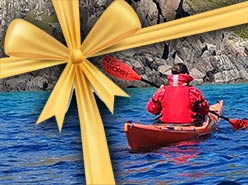Reclaiming mental wellbeing on the water – Blue space eco-therapy
Reclaiming mental wellbeing on the water – Blue space eco-therapy
What is it about being close to or on the water that soothes, calms and allows us to relax? The benefits of Green Space Therapy are well known and are even prescribed by some GP practices. Blue space therapy is starting to be studied more and has the potential to provide the framework for healing the emotional distress that has been with many of us throughout our lives and escalated throughout the whole population in the last 2 years.
“Millions of patients in England face dangerously long waits for mental health care unless ministers urgently draw up a recovery plan to tackle a “second pandemic” of depression, anxiety, psychosis and eating disorders, NHS leaders and doctors have warned.”
So why is this?
- Recent neuroscience research has focussed in on how we create moods and emotions. The bottom line is that animals, including humans, generally feel good about safety, warmth and food and generally bad about threatening situations where life or security is compromised. In situations of threat we often withdraw physically or within ourselves or become more antagonistic and potentially aggressive. Sounds familiar? However, some animals deal with extreme threat differently than we do. Peter Levine – trauma specialist, notes that animals caught in a life threatening situation, for example, a gazelle being mauled by a lion, either shutdown all their senses so that they do not experience the pain or if they are lucky enough to escape have a good shake and then set off with a few cuts and bruises but apparently unscarred mentally.
- Human beings have developed massively over the centuries and perhaps in becoming more sophisticated, have lost the ability to deal with threat. Instead of shaking off threat and carrying on when it has disappeared, we remember and store it away for future reference. The neuroscience research carried out by Lisa Feldman Barrett suggests that remembered information is used to predict what will happen and sets off a train of chemical and hormonal responses throughout our body. In short, our internal nervous system remembers and produces a whole series of reactions when threat is perceived. These reactions are below our normal level of consciousness – just as the feelings of blood pumping around our body, digestion occurring and T cells being sent off to combat infection are usually, all below our level of consciousness. As Besell Van der Kolk puts it – “The Body keeps the Score” and sometimes when our body detects threat, our brain makes a wrong prediction about how dangerous or current the danger is. This is why trauma which occurred decades ago when we are children still affects us now. Cruel words or actions experienced as a youngster were perceived as life threatening, we felt not good enough, we felt bad and our nervous system remembers, fires off danger signals and our brain predicts we should feel bad and we do…
So how can blue space and water activities such as sea kayaking help?
- Researchers at Stirling University concluded that nature based wellbeing programmes worked because of several factors which included:
- Getting away and having the physical space to breathe
- Increased physical exercise
- Having a purpose
- Improved relationships
- Shared experiences and decreased isolation
- Increased self efficacy and life skills
- All activities that generally allow you to feel good through feeling stimulated, interested and safe. An additional benefits of being out in nature, highlighted in Ethan Kross’s book “Chatter- The Voice in Our Head, Why It Matters, and How to Harness It“, includes the sense of “Awe” that we can get from being in beautiful places. It calms our nervous system, our senses and allows to feel good.
- We are supremely lucky to live in the “awe” inspiring Inner Hebrides, mountains, turquoise sea and stunning beaches remind us daily about how lucky we are. Every day we are on the water paddling in this paradise that sense of relaxation, being able to breathe and feeling positive permeates through our minds and bodies.
Creating habits to build wellbeing – curiosity and connection
- We want to build programmes that intentionally promote wellbeing and teach our bodies, our nervous systems and our brains that we can thrive even if we get reminders of past hurts and dangers. We can do this through:
- stimulating curiosity when strong feelings course through us.
- connecting with ourselves, through the physicality of paddling and daily practices such as yoga, mindfulness, gratitude and meditative exercises
- connecting with others through listening and observing.
- connecting with the environment through being present and mindful.
About Us – facilitating the course
Avril Leonard and Jon Lloyd are both qualified counsellors and very experienced outdoor practitioners.
- Avril is a Person Centred counsellor, yoga teacher, outdoor therapist and has worked at various centres including Ridgway Adventure Outdoors, Venture Trust, Outward Bound New Zealand amongst others
- Jon is an Integrative counsellor specialising in trauma work who has worked at places including Spinnakers Sailing Centre, Camas outdoor experiential learning Centre, Outward Bound New Zealand and Bramley Lakes team development centre.
We are running a “Water and Wellbeing” Programme based around a 5 day Sea Kayak expedition in the stunning Inner Hebrides in May 2023 – dates to be confirmed. If you are interested please get in touch via contact@bendoranwatersports.co.uk and we can arrange to chat through the programme with you.

